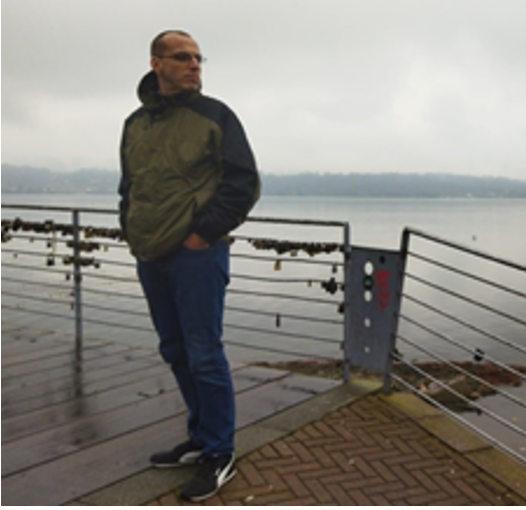Co-lecture on Heritage and Utilization of Indigenous African Foods

 Prof. Michele Filippo Fontefrancesco is an Assistant Professor of Cultural Anthropology at the University of Gastronomic Sciences and convenor of the undergraduate program in Gastronomic Sciences and Cultures. Michele holds a Bachelor of Arts in History (2005) and a Master of Arts in Italian Language and Culture (2007) from the University of Eastern Piedmont, Italy. Thereafter he continued with his education in Poland, the USA, and the UK. He completed his Doctoral thesis titled “Crisis in the city of gold: Emplacement, industry and economic downturn in Valenza, Italy” and graduated in 2013 from Durham University, UK. His Ph.D. study focused on “The impact of the 2008 global economic crisis on the development of artisanship in Italy”.
Prof. Michele Filippo Fontefrancesco is an Assistant Professor of Cultural Anthropology at the University of Gastronomic Sciences and convenor of the undergraduate program in Gastronomic Sciences and Cultures. Michele holds a Bachelor of Arts in History (2005) and a Master of Arts in Italian Language and Culture (2007) from the University of Eastern Piedmont, Italy. Thereafter he continued with his education in Poland, the USA, and the UK. He completed his Doctoral thesis titled “Crisis in the city of gold: Emplacement, industry and economic downturn in Valenza, Italy” and graduated in 2013 from Durham University, UK. His Ph.D. study focused on “The impact of the 2008 global economic crisis on the development of artisanship in Italy”.
Since the mid-2000s, his research has focused on local development, with particular attention on Entrepreneurship, Sustainable Development, and the Construction of Local Know-How. In recent times, Prof Fontefrancesco’s active research in Southern Europe and East Africa (Kenya) has been on the Role of Food Tourism in the development of rural areas and the processes concerning the discovery and use of food heritage for tourism development.
He has published over 60 scientific articles, monographs, chapters, and reviews internationally; among them The End of the City of Gold?: Industrial and Economic Crisis in an Italian Jewellery Town (Cambridge Scholars, 2013) and Food Festivals and Local Development in Italy: A Viewpoint from Economic Anthropology (Palgrave, 2020). His research in Kenya has been published in international journals such as Frontiers in Sustainable Food Systems, the International Journal of Gastronomy and Food Sciences, and the Journal of Ethnobiology and Ethnomedicine. He is currently leading national and international projects concerning the development of the food and tourism sectors, such as "Food Drug-Free" (European Regional Development Fund) and "The European Network for the Promotion of Culinary and Proximity Tourism in Rural Areas" (funded by the European Erasmus+ Fund).
Prof Fontefrancesco uses his research expertise to enrich the delivery of both undergraduate and postgraduate teaching responsibilities. In his classes, he introduces students to the main themes of anthropology and supports them in their projects concerning socio-economic innovation and food heritage valorization. Among his modules: are Anthropology of Food (Bachelor’s program in Gastronomic Sciences and Cultures), Applied Anthropology for Sustainable Food Systems (Master’s program in Food Innovation & Management), and Creating High-Quality Products (Master’s program in Food Culture, Communication & Marketing).
Finally, Michele has had diverse work exposure that has seen him serve as an Adjunct Professor of Italian at the University of Mary Washington (USA), a Teaching Assistant at Durham University (UK), and currently an Assistant Professor of Anthropology, at the University of Gastronomic Sciences (Italy). He is quite passionate about collaborations with international institutions and to this end, he is currently a Fellow of the Department of Anthropology at Durham University (UK) and an Associate Fellow of the City Diplomacy Lab at Columbia Global Centers in Paris (France).
Dr. Stellamaris Muthoka is a Lecturer in Applied Human Nutrition and currently Chairperson of the Department of Human Nutrition, at Egerton University. Dr. Muthoka holds a Doctoral degree in Nutritional Sciences from Egerton University (2011), Diploma in Food and Nutrition Security from Wageningen University (2009), a Master of Science in Applied Human Nutrition from the University of Nairobi, Kenya (1998), and a Bachelor of Science in Agriculture and Home Economics from Egerton University, Kenya (1991).
 Dr. Muthoka has wealth of experience in participatory research and community mobilization and development and consultancy services focusing on enhanced livelihoods, especially in arid and semi-arid areas, food and nutrition security, rights to Food, and Maternal and Child Health. Over the past decade, Dr. Muthoka has widened her research and consultancy domain in the health and water areas in multi-sectoral research including the rehabilitation of the Njoro River towards meeting Vision 2030.
Dr. Muthoka has wealth of experience in participatory research and community mobilization and development and consultancy services focusing on enhanced livelihoods, especially in arid and semi-arid areas, food and nutrition security, rights to Food, and Maternal and Child Health. Over the past decade, Dr. Muthoka has widened her research and consultancy domain in the health and water areas in multi-sectoral research including the rehabilitation of the Njoro River towards meeting Vision 2030.
Dr. Muthoka has published in peer-reviewed scientific publications and made contributions to numerous scholarly conferences, workshops, and community outreach. She has and is currently supervising several postgraduate (Masters's and Doctoral) students both in Kenya and internationally. Currently, she is supervising a Ph.D. student, whose thesis focuses on “Assessing the contribution of sweet potato leaves on iron and nutritional status in women”.
Dr. Muthoka is currently a member of the Kenya Bureau of Standards (KEBS), Fat and Oils Technical Committee; an External examiner for the graduate programme, Department of Food and Human Sciences, Lilongwe University of Agriculture and Natural Resources, Malawi; Member of the Nutrition Security Technical Working Group (MOH) and Nutrition Linkages Technical Working Group (MOA); She is a registered member of the Kenya Nutritionist and Dietetics Institute, Scaling Up Nutrition –Academia Committee and has also served as Project Management Committee member of CDF project in Lanet and Bahati, Nakuru County.